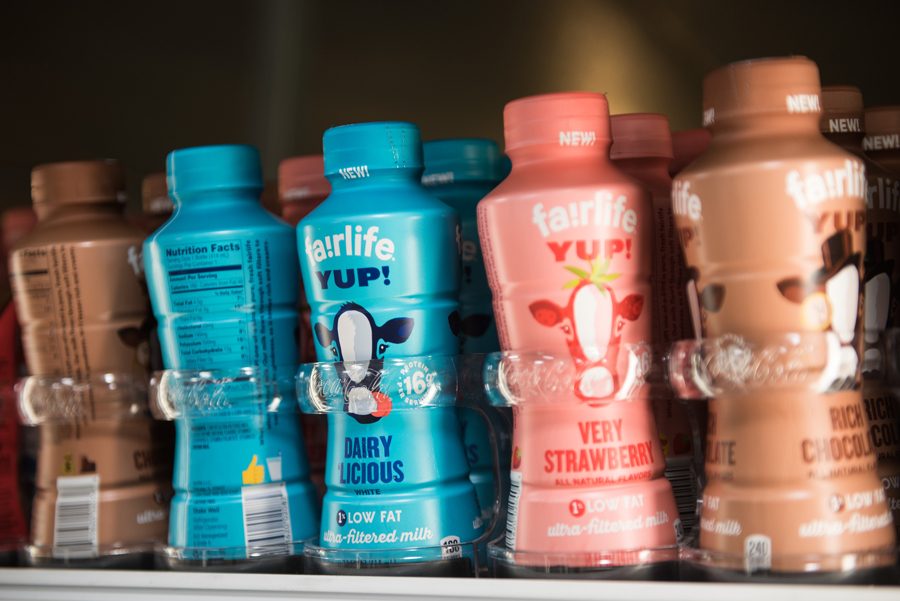Stop drinking milk after coming to NU? You’re not alone
Brian Meng / Daily Senior Staffer
Some students say they drink less milk after they leave home and come to Northwestern.
November 13, 2018
Many students change their study habits, sleeping habits and even personalities when they come to Northwestern. But a change in one part of their lives can often go unnoticed: milk consumption.
Dining halls offer students an exciting array of choices, ranging from fruit-infused water to Starbucks coffee. But milk is not often as popular of a choice. In fact, students may be less likely to drink milk once they come to campus.
Americans today — at every age group — are drinking less milk than previous generations, according to a 2013 study by the U.S. Department of Agriculture. National survey data also shows milk consumption decreases as Americans move into adolescence and adulthood.
Sarah Eisenman, a Weinberg freshman, was drinking milk in Hinman Dining Hall last week because her mother had suggested it in a recent conversation. But Eisenman wasn’t surprised that many college students are drinking less milk.
“Because we often have cartons of milk in the fridge at home, it’s easy to take it out and have with meals,” she said. “Here you don’t really have that, and there are other drinks like soda and juice so people choose to go that route.”
Eisenman’s mom also suggested she switch to 2 percent milk because the higher fat content is healthier. A 2016 study published in the American Journal of Nutrition found that people who consume full-fat dairy weigh less and are less likely to develop diabetes.
Medill freshman Saira Singh has also reduced her milk consumption. “At home I would have milk everyday, sometimes twice a day, whereas here I have it twice a week.”
Among reasons for the drop, Singh described eating less breakfasts at Northwestern than she did at home.
For many Northwestern students, the inconvenience of the dining halls — compared to the kitchen at home — can lead to less breakfasts, and as result, less milk.
“I’m just not inclined to go the dining halls just to get a glass of milk, whereas at home I could go downstairs and grab some,” Medill freshman Marleigh Thorn said.
For some students, the drop in milk consumption has less to do with convenience and more to do with an upset stomach. Many have some degree of lactose intolerance — including over 30 to 50 million Americans according to National Institutes of Health — and though they do not all choose to avoid dairy completely, the intolerance still plays a prominent role in their dining decisions.
“At home I still wanted the calcium so I’d take Lactaid,” said Kelly Miller, a lactose intolerant freshman in Weinberg. “Here I kind of just do soy milk in my cereal.”
While Compass, Northwestern’s dining service provider, does offer small amounts of Lactaid and rice milk at select dining halls, many lactose intolerant students are forced to either use soy milk or go without.
“I try to avoid milk as much as possible. I never formally got diagnosed as lactose intolerant, but every time I would try it I would always feel really bad afterwards. Now I haven’t had milk for a couple years,” said Weinberg freshman Daniel Lee.
Despite the broad trend of decreased milk consumption, dining staff say the beverage is still quite popular. On average, Northwestern dining locations see a consumption of milk around 650 gallons per week, Compass marketing director Georgene Sardis said, with chocolate milk making up one third of the total milk consumption volume.
“Everybody loves milk!” added Abby Noush, a member of the Hinman Dining Staff.
Email: [email protected]












